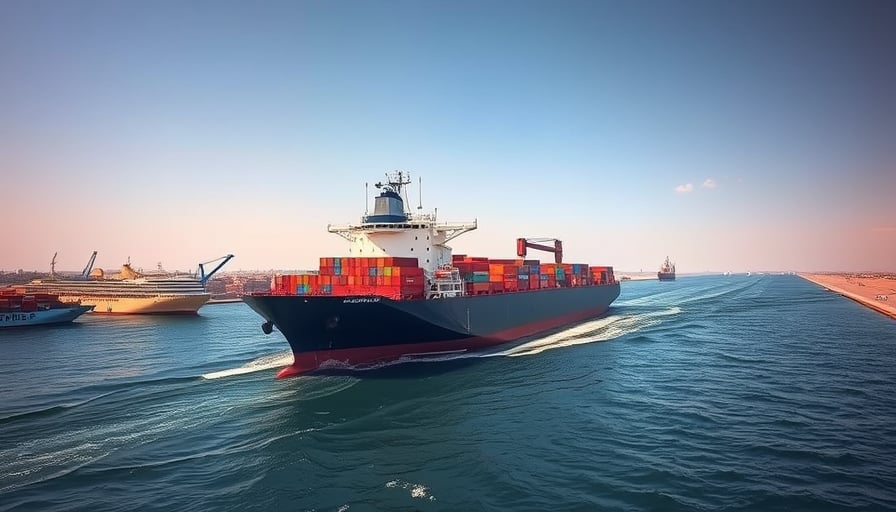Corporate Analysis: A.P. Møller‑Mærsk’s Recent Performance and Strategic Positioning
A.P. Møller‑Mærsk, the global shipping conglomerate headquartered in Denmark, released its latest quarterly earnings on November 6. The report highlighted a contraction in both earnings per share (EPS) and revenue compared with the same period a year earlier. Despite these setbacks, the company’s management has reiterated its commitment to a share‑repurchase programme, signalling confidence in the underlying business model and a willingness to support the share price in an increasingly uncertain market environment.
Financial Performance Overview
| Metric | Current Quarter | Prior Year | YoY Change |
|---|---|---|---|
| Revenue | €6.3 bn | €6.8 bn | ‑7.4 % |
| Earnings per Share | €2.15 | €2.70 | ‑20.4 % |
The decline in revenue reflects a combination of lower freight rates, heightened operational costs, and the ongoing impact of geopolitical tensions that have disrupted global supply chains. EPS fell more markedly, partly due to increased capital expenditures on vessel maintenance and investment in digital infrastructure, as well as a higher proportion of one‑off expenses related to the Suez Canal negotiations.
Analyst Perspective
Danske Bank’s analysts reviewed the third‑quarter results and subsequently raised the target price for Mærsk shares. Their rationale centres on the company’s ability to weather short‑term headwinds while maintaining a resilient cost structure. Nevertheless, the analysts maintained a “sell” recommendation, underscoring the broader market volatility and the company’s exposure to cyclical freight rates.
Strategic Initiatives
Share‑Repurchase Programme
Mærsk’s decision to continue its share‑repurchase programme is a clear signal of management’s conviction that the current share price undervalues the firm’s long‑term prospects. By returning capital to shareholders, the company aims to offset dilution and demonstrate confidence in its cash‑flow generation, even as earnings face downward pressure.
Suez Canal Negotiations
Simultaneously, Mærsk engaged with the Suez Canal Authority to explore the resumption of transit services through the canal. A prompt reopening would alleviate current bottlenecks and could help stabilize freight rates. The company’s proactive dialogue with the authority illustrates its focus on securing critical infrastructure for its fleet, which remains essential to maintaining competitive positioning in the global shipping arena.
Market Context
The Danish C25 index experienced a modest decline on Friday, with Mærsk among the stocks that slipped. The index’s slight underperformance relative to broader European benchmarks reflects heightened sensitivity to macro‑economic signals such as interest‑rate expectations, commodity price volatility, and geopolitical developments. Mærsk’s stock movement contributed to this imbalance, underscoring how sector‑specific dynamics can ripple across national indices.
Cross‑Sector Implications
Mærsk’s experience mirrors challenges faced by other transport and logistics firms, notably airlines and rail operators, where fluctuating fuel costs and demand uncertainties similarly strain profitability. The company’s emphasis on digital transformation and efficient fleet utilization aligns with a broader industry trend toward sustainability and resilience, which can serve as a benchmark for competitors in adjacent sectors.
Conclusion
While A.P. Møller‑Mærsk’s most recent quarterly results demonstrate a contraction in earnings and revenue, its strategic actions—particularly the continued share‑repurchase programme and negotiations with the Suez Canal Authority—indicate a cautious but optimistic outlook. The firm’s ability to navigate tightening market conditions, maintain operational flexibility, and uphold shareholder value positions it favorably within the cyclical shipping industry, even as the global economic landscape remains turbulent.
